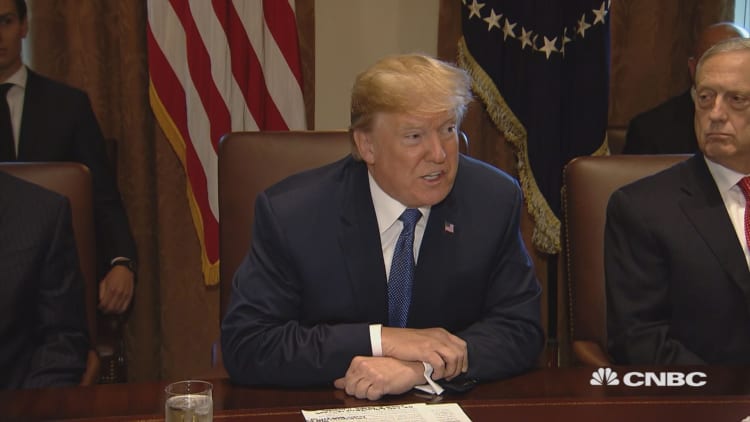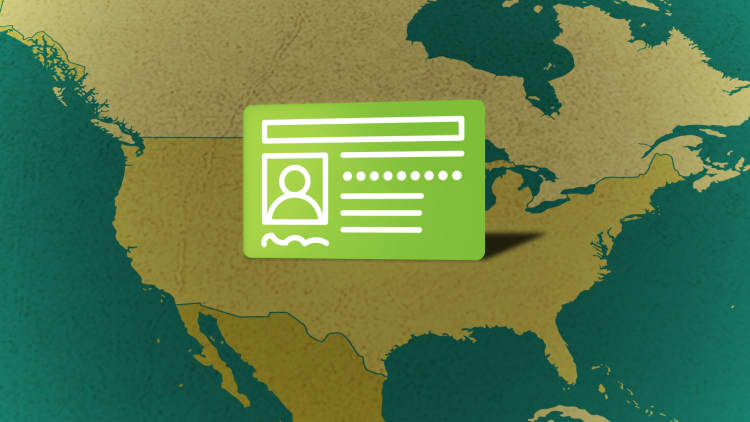Last fall, after green-card lottery recipient Sayfullo Saipov allegedly used a truck to kill eight people in New York City, President Donald Trump told law enforcement officials that immigrants who enter the U.S. through visa lotteries are the "worst of the worst."
Here's how that lottery works.
The diversity visa lottery, more commonly known as the green-card lottery, was instituted in 1995 and offers a chance for people from qualifying countries to get a green card. It is intended to provide diversity in U.S. immigration, so only individuals from countries underrepresented in the U.S. are encouraged to apply.
If a person qualifies and is chosen, the lottery can allow them to receive a green card, which, aside from voting, offers all the benefits of permanent residency in the U.S. But even if you do qualify, only a small number of people who enter the lottery will win.
Each year, the government makes 55,000 permanent resident cards available to people from underrepresented places like Uzbekistan and Ethiopia. To apply, these folks must have the equivalent of at least a high school education or two years of work experience during the past five at a job that required at least two years of training.
Lottery winners randomly chosen by a State Department computer program must submit documents and be interviewed at the U.S. embassy in their home country. Fewer than 1 percent of applicants are selected and undergo background checks, according to The Washington Post. They can obtain a permanent residency visa if they clear the background check.

Nearly half of the visa recipients came from Africa in 2016, according to NPR. The top individual countries included Nepal, Egypt and Iran. While a certain amount of luck gets applicants in the door, application speed and adherence to program rules and regulations are key factors in the application process.
Still, Trump has said ending the lottery is one of his conditions for a bill to protect DACA recipients.
To that end, proposed reform from Republican Sens. Tom Cotton, R-Ark., and David Perdue, R-Ga., called the Reforming American Immigration for Strong Employment Act, would use a point-based system similar to ones in the United Kingdom and Australia and would base admission on education level, job offers and ability to speak English. The plan would drastically reduce the number of immigrants and be similar to restrictions from the early 20th century.
And it would eliminate the diversity visa lottery program, which means if someone is unable to qualify for a family, refugee or employment visa, they would have no other option to enter the U.S.



